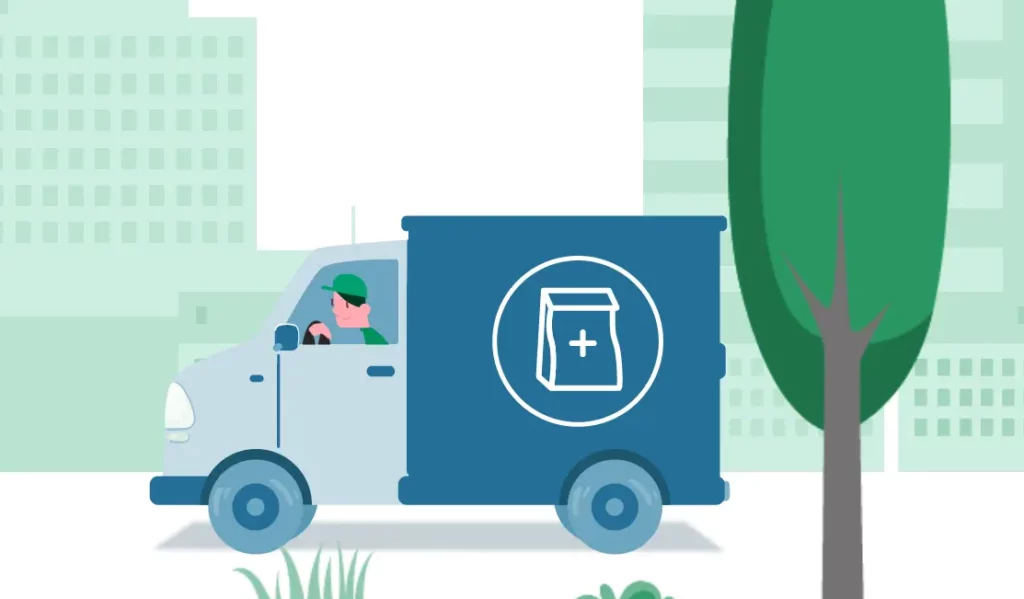Chronic Obstructive Pulmonary Disease (COPD) is a common lung condition affecting people worldwide. It leads to breathing difficulties due to long-term bronchitis and emphysema. To manage COPD effectively, it’s crucial to understand the disease’s four distinct stages, each with its own set of symptoms, challenges, and treatment options.
What Causes COPD?
COPD commonly results from extended exposure to lung irritants, with the leading causes being:
- Smoking: Cigarette smoking is the primary risk factor. It causes lasting lung damage, and quitting smoking can slow COPD progression.
- Air Pollution: Inhaling indoor pollutants (e.g., from biomass fuels) and outdoor air pollution, particularly in urban areas, raises the risk.
- Lung Infections: Frequent lung infections, especially in childhood, can lead to reduced lung function and an increased COPD risk. Vaccinations and preventive measures are key.
- Ageing: While not a direct cause, age-related lung function decline contributes to COPD.
An Overview of Stage 1: Mild COPD
In the initial stage of COPD, often referred to as “mild,” lung function is only slightly affected. Symptoms can be so mild that many people may not even realise they have COPD during this stage.
Symptoms and Warning Signs
- Occasional breathlessness during strenuous activities
- A persistent morning cough
- Infrequent or mild mucus production
- Rare exacerbations (worsening of symptoms)
Diagnosing Stage 1
Diagnosis is typically based on a lung function test called spirometry, but results may still appear fairly normal at this stage.
Treatment and Management
- Quitting smoking is vital for those who smoke.
- Medications, such as bronchodilators, may be prescribed.
- Encouraging a healthy lifestyle with regular exercise and a balanced diet.
- Vaccinations (e.g. flu and pneumonia) can help prevent symptom exacerbations.
An Overview of Stage 2: Moderate COPD
In the second stage of COPD, known as “moderate,” the impact on lung function is more pronounced than in the mild stage, affecting daily life.
Symptoms and Warning Signs
- Increased breathlessness during daily activities
- Persistent and disruptive cough
- Frequent mucus production
- More severe and frequent symptom exacerbations
Treatment and Management
- Smoking cessation is essential for smokers.
- Your GP may prescribe bronchodilators and other medications to enhance lung function and alleviate symptoms.
- Prioritising exercise and participating in pulmonary rehabilitation becomes even more crucial for improving lung function and endurance.
- In some instances, oxygen therapy may be recommended to ensure an adequate oxygen supply.
Moderate COPD presents additional challenges, but with appropriate management and lifestyle adjustments, individuals can maintain a reasonable quality of life and slow down the disease’s progression.
An Overview of Stage 3: Severe COPD
In Stage 3 of COPD, often referred to as “severe,” there is a marked decline in lung function, significantly impacting daily life.
Symptoms and Warning Signs
- Pronounced breathlessness during daily activities
- Frequent and disruptive cough
- Excessive mucus production
- Challenges in daily life activities
You may also experience the following symptoms:
- A tight feeling in your chest
- Extreme fatigue
- Swelling in the ankles, legs and feet
- Forgetfulness and confusion
Treatment and Management
- Smoking cessation remains vital.
- Medications may be prescribed to improve lung function and alleviate symptoms.
- Pulmonary rehabilitation and exercise are essential for maintaining lung function and overall health.
- Oxygen therapy may be recommended to ensure sufficient oxygen supply.
An Overview of Stage 4: Very Severe COPD
In the fourth and final stage of COPD, known as “very severe,” lung function is critically compromised, resulting in a severely diminished quality of life.
Symptoms and Warning Signs
- Extreme breathlessness, even during minimal physical activity
- Chronic and severe coughing
- Persistent and excessive mucus production
- Severe limitations in daily activities and independence
Treatment and Management
- Smoking cessation remains critical, if applicable.
- Medications, such as bronchodilators and corticosteroids, are often prescribed to alleviate symptoms and improve lung function.
- Palliative care and symptom management become a primary focus, emphasising comfort and quality of life.
- Lung transplant may be considered as a last resort in specific cases.
Very severe COPD presents immense challenges, but with palliative care and comprehensive support, individuals can find comfort and an improved quality of life, even in the face of advanced disease progression.
Order Your Prescription with Healthera
If you’ve been prescribed medication by your GP to treat your COPD, you can now place your order online from your local pharmacy with Healthera.
It only takes a few minutes to set up your prescription for collection or home delivery.
To get started, simply click the button below:

